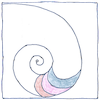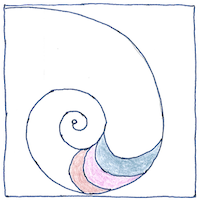Robert Hooke
psychology

|
Memory
Memory is an organ in the brain for apprehending time, a repository for ideas to which the soul gives attention and from which it may retrieve past ideas. Different materials in the brain retain impressions from different senses. A new idea that is similar to an older excites the attention to make the older more notable. In the center, the soul creates the most recent idea, and it coils its ideas in sequence around the center, the oldest being the most distant. As they age, ideas decay, become crowded, are occluded by new ideas, or are lost. To apprehend the clarity of, the order of, and the distance between ideas in their sequence is to understand time.
Theories of memory
Aristotle and his school thought immaterial intentional beings conserved objects in our memories. Decartes claimed the pineal gland forced spirits through pores of the brain and that the paths they take were later penetrated more readily to induce motions in the pineal gland. Sir Kenelm Digby taught that material shells and images of things bounced off the common sense into vacant cells of the brain where they kept their orders and shapes until they were stirred up to slide back through the fancy. Thomas Hobbes explained man is an organic machine and memory is knowledge of decaying sense.
Life in memory
In here is my identity in small manifestations, like a chain of paper dolls only no two alike. Feelings—hope, love, grief, anger, joy, relief—adhere. All the movies ready for streaming, all the channels spanning the cable, all the stations reaching the antenna, and I can watch only one at a time.



Robert Hooke read his lecture on memory to members of the Royal Society twice in June 1682. It was published posthumously in 1705 but was overlooked for two hundred years.
Hooke was aware of models of memory reviewed in by his acquaintance Joseph Glanvill—“The Peripatetic, the Cartesian, the Digbean, and the Hobbian.” Hooke might not have been aware of parallel thoughts on memory by John Locke, who also attributes to memory our sense of time, but he is likely to have developed his theory in reaction to Henry More, who claimed that memory is contained in the soul with no physical tie to the brain.
See also in The book of science:
Readings in wikipedia:
Other readings: